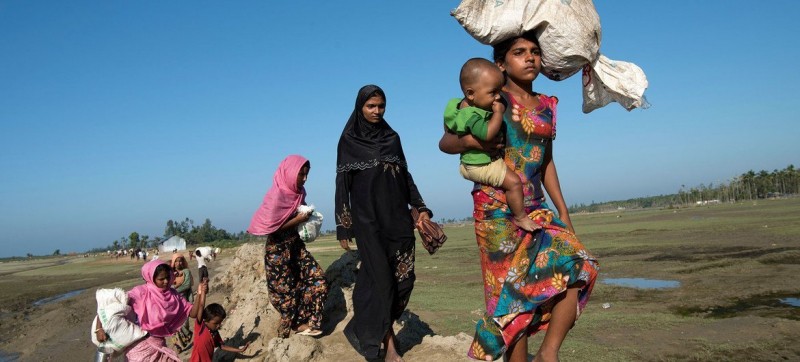Rohingya refugees flee to Cox’s Bazar, Bangladesh. (file) The UN human rights office, OHCHR, announced on Friday that the High Commissioner will travel over the weekend to Bangladesh. At the invitation of the Government, Michelle Bachelet will visit Bangladesh from Sunday, 14 August, in the first-ever official trip by a UN Human Rights chief to the country. There, she will visit camps housing Rohingya refugees from Myanmar, as well as high-level officials, including Prime Minister Sheikh Hasina Wazed and other ministers, and the National Human Rights Commission along with representatives of civil society organizations.
🇧🇩 UN Human Rights Chief @mbachelet will conduct an official visit to #Bangladesh, including Cox’s Bazar, from 14 to 17 August.
This is the first official visit by a UN Human Rights Chief to the country.
👉https://t.co/ns35QUl8fe pic.twitter.com/ZPF50yf3iC
— UN Human Rights (@UNHumanRights) August 12, 2022
Lives ‘hanging in the balance’
Back in 2017, violent attacks in Myanmar triggered an estimated 745,000 Rohingya, including more than 400,000 children, to flee to Bangladesh.
In June, Ms. Bachelet pointed out that the military continues to “use hostile and derogatory language to threaten and marginalize” the mostly-Muslim Rohingya in Rakhine state – hundreds of thousands of whom were forced to flee – “and to implement strict discriminatory limitations on their movement”.
The lives and future of Myanmar’s people are “hanging in the balance,” she said, adding that it was “disappointing” that international efforts to rein in the military’s recklessly violent approach, have been largely ineffective”.
UN expert to visit Cambodia
Meanwhile, on Monday, UN-appointed human rights expert, Vitit Muntarbhorn, will make his first official visit to Cambodia.
Over the course of two weeks, he will assess the human rights situation in the country along with the government’s efforts toward creating an environment for all to enjoy them – including political and civil rights and economic, social and cultural rights following the Covid-19 pandemic.
“I look forward to meeting a wide range of stakeholders, including government representatives, human rights defenders and other relevant stakeholders,” he said.
Press freedom increasingly under threat
The UN Special Rapporteur’s visit comes amidst growing restrictions on civic space and press freedoms in the country.
According to a report by the UN Human Rights Office (OHCHR), journalists are being increasingly subjected to various forms of harassment, pressure, and violence.
In it, OHCHR in Cambodia outlined the country’s increasing lack of freedoms, including for the press and of expression by examining the legal framework; the state of media ownership; and specific challenges faced by women media workers.
The independent rights expert’s visit is at the invitation of the government. He will hold meetings with national and local government officials and international and local civil society representatives across the country.
Special Rapporteurs are appointed by the Geneva-based UN Human Rights Council to examine and report back on a specific human rights theme or a country situation. Their positions are honorary and the experts are not paid for their work.

